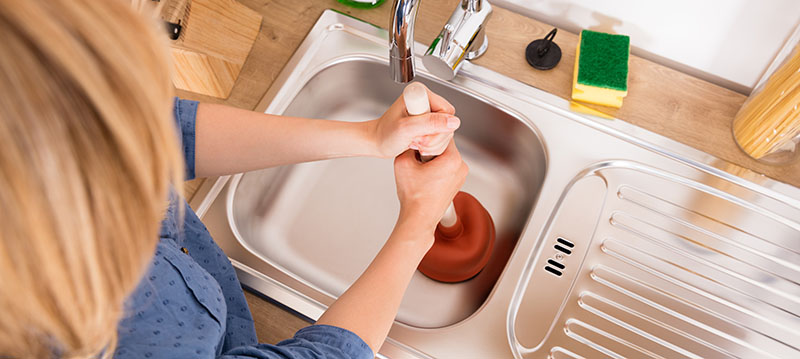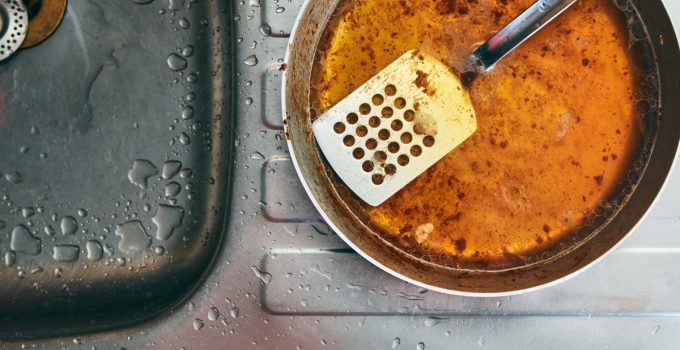Unclog a Kitchen Sink
If your kitchen sink isn't draining properly, it can be a major inconvenience. Not only does it make doing dishes difficult, but it can also lead to unpleasant odors and even potential plumbing issues. But don't worry, there are ways to unclog a kitchen sink and get it draining again in no time. Here are 10 tips to help you get your kitchen sink back to working order.
How to Fix a Clogged Kitchen Sink
Before you attempt to unclog your kitchen sink, it's important to understand what may be causing the blockage. Some common causes include food scraps, grease buildup, and objects like utensils or small toys getting stuck in the drain. Once you have an idea of what's causing the clog, you can use the following methods to fix it.
Kitchen Sink Not Draining? Here's What to Do
If your kitchen sink is not draining, the first thing you can try is using a plunger. Fill the sink with a few inches of water, place the plunger over the drain, and push down and up several times. This can help dislodge any clogs and get the water flowing again. If that doesn't work, try one of the following methods.
5 Ways to Clear a Clogged Kitchen Sink
1. Baking Soda and Vinegar - This is a classic DIY solution for a clogged sink. Pour half a cup of baking soda down the drain, followed by half a cup of vinegar. Let it sit for a few minutes, then pour boiling water down the drain to help flush out the clog.
2. Boiling Water - Sometimes, all you need is some good old-fashioned boiling water. Carefully pour a pot of boiling water down the drain to help break up and flush away any clogs.
3. Salt and Hot Water - Another simple solution is to mix a half cup of salt with a pot of hot water and pour it down the drain. Let it sit for a few minutes before running hot water to see if it has helped loosen the clog.
4. Plumber's Snake - If you have one, a plumber's snake can be a handy tool for clearing a clogged kitchen sink. Insert it into the drain and twist it to help break up and remove any blockages.
5. Call a Professional - If none of the above methods work, it may be time to call a plumber. They have the tools and expertise to effectively clear stubborn clogs and prevent them from happening again in the future.
DIY Solutions for a Slow-Draining Kitchen Sink
If your kitchen sink is draining slowly, it's likely that there is a partial clog that is restricting the water flow. In addition to the methods mentioned above, here are a few DIY solutions that can help with a slow-draining kitchen sink.
- Boiling water and dish soap - Pour a pot of boiling water down the drain, followed by a few tablespoons of dish soap. Let it sit for a few minutes before flushing with hot water.
- Baking soda and salt - Mix equal parts baking soda and salt and pour it down the drain. Let it sit for a few minutes before flushing with hot water.
- Hot water and bleach - Pour a pot of hot water down the drain, followed by half a cup of bleach. Let it sit for a few minutes before flushing with hot water.
These solutions can help break up and dissolve any buildup or debris that may be causing your kitchen sink to drain slowly.
Common Causes of a Kitchen Sink Not Draining
As mentioned earlier, some common causes of a kitchen sink not draining include food scraps, grease and oil buildup, and foreign objects getting stuck in the drain. To prevent these issues, be mindful of what you put down your sink and regularly clean and maintain your drains to keep them clear.
How to Use a Plunger to Unclog a Kitchen Sink
Using a plunger to unclog a kitchen sink is a simple but effective method. To do so, fill the sink with a few inches of water and place the plunger over the drain. Make sure the plunger is creating a tight seal and then push down and up several times. If the water starts to drain, keep plunging until the sink is empty. If it doesn't work, try one of the other methods mentioned above.
Why Is My Kitchen Sink Not Draining?
If your kitchen sink is not draining, it could be due to a number of reasons. It may be a simple clog that can be easily fixed with one of the DIY solutions mentioned above. However, it could also be a more serious issue such as a damaged pipe or a sewer line blockage. If you're unsure of the cause, it's best to call a professional plumber to assess the situation and provide the necessary repairs.
How to Clear a Clogged Kitchen Sink with Baking Soda and Vinegar
This DIY solution is worth mentioning again as it is a popular and effective method for clearing a clogged kitchen sink. To do so, pour half a cup of baking soda down the drain, followed by half a cup of vinegar. Let it sit for a few minutes before pouring boiling water down the drain to help flush out the clog.
Tips for Preventing a Clogged Kitchen Sink
To avoid dealing with a clogged kitchen sink in the future, here are a few tips to help prevent them from happening:
- Scrape off food scraps into the trash before washing dishes.
- Avoid pouring grease or oil down the drain. Instead, wipe it off with a paper towel and dispose of it in the trash.
- Use a drain cover to catch any small objects that could potentially cause a clog.
- Regularly clean and maintain your drains by using a DIY solution or a store-bought drain cleaner.
The Importance of a Properly Functioning Kitchen Sink in House Design
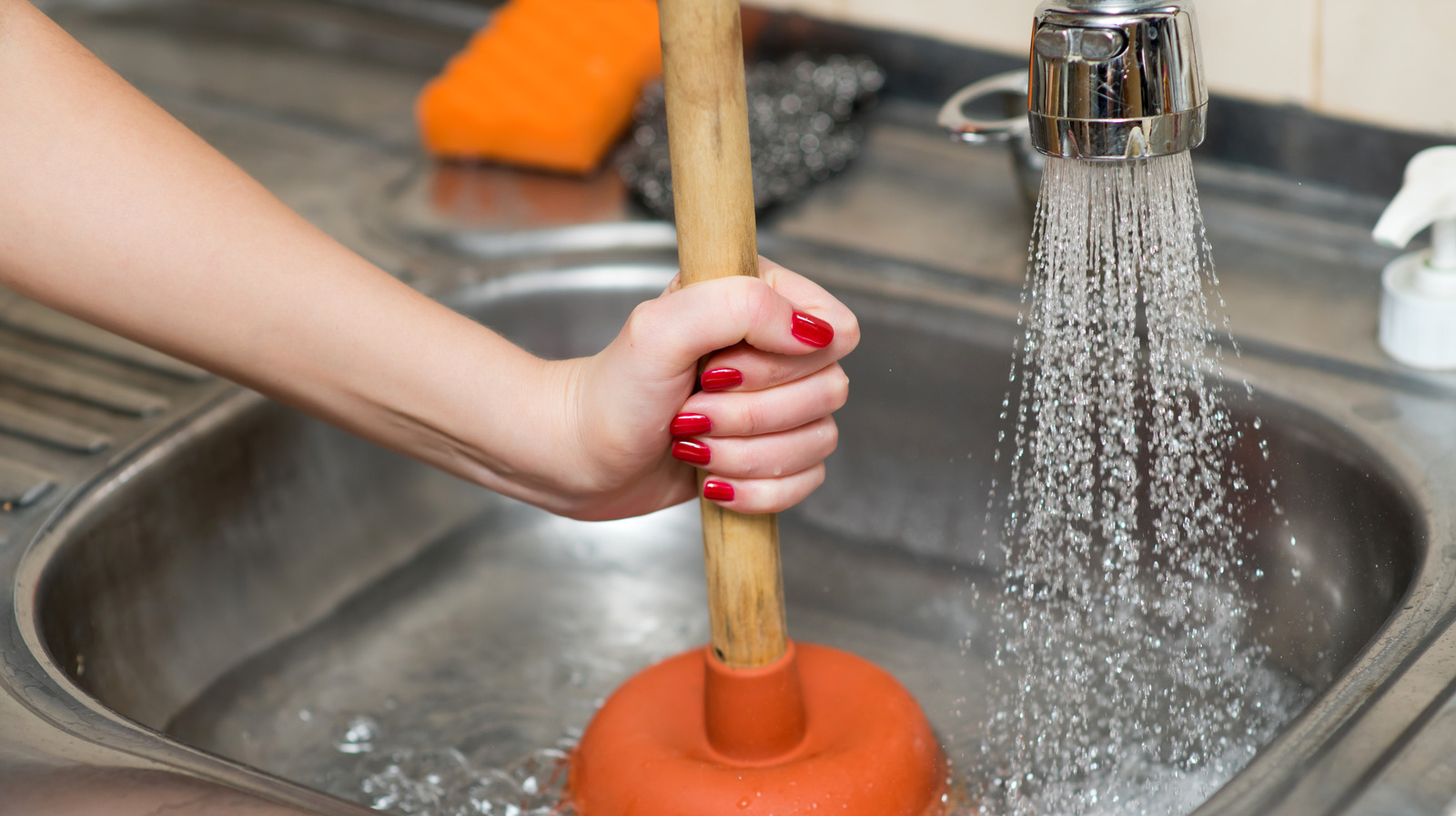
Why a Kitchen Sink that Isn't Draining Can Cause Problems
 A kitchen sink that isn't draining properly can quickly become a major inconvenience in any household. Not only does it disrupt daily tasks such as washing dishes and preparing food, but it can also lead to bigger issues if left unaddressed. A clogged or slow-draining sink can indicate larger plumbing problems, which can lead to costly repairs if not taken care of in a timely manner. Additionally, standing water in the sink can create a breeding ground for bacteria and mold, causing potential health hazards. Therefore, it is crucial to address any drainage issues with your kitchen sink as soon as they arise.
A kitchen sink that isn't draining properly can quickly become a major inconvenience in any household. Not only does it disrupt daily tasks such as washing dishes and preparing food, but it can also lead to bigger issues if left unaddressed. A clogged or slow-draining sink can indicate larger plumbing problems, which can lead to costly repairs if not taken care of in a timely manner. Additionally, standing water in the sink can create a breeding ground for bacteria and mold, causing potential health hazards. Therefore, it is crucial to address any drainage issues with your kitchen sink as soon as they arise.
The Common Causes of a Kitchen Sink that Isn't Draining
 There are several reasons why a kitchen sink may not be draining properly. One of the most common causes is a clog in the pipes. This can be due to a buildup of food particles, grease, or other debris. Another possible cause is a faulty drain or garbage disposal, which can prevent water from flowing freely through the pipes. In some cases, the issue may be with the plumbing system itself, such as a broken or misaligned pipe. Regardless of the cause, it is essential to address the issue promptly to avoid further complications.
There are several reasons why a kitchen sink may not be draining properly. One of the most common causes is a clog in the pipes. This can be due to a buildup of food particles, grease, or other debris. Another possible cause is a faulty drain or garbage disposal, which can prevent water from flowing freely through the pipes. In some cases, the issue may be with the plumbing system itself, such as a broken or misaligned pipe. Regardless of the cause, it is essential to address the issue promptly to avoid further complications.
How to Fix a Kitchen Sink that Isn't Draining
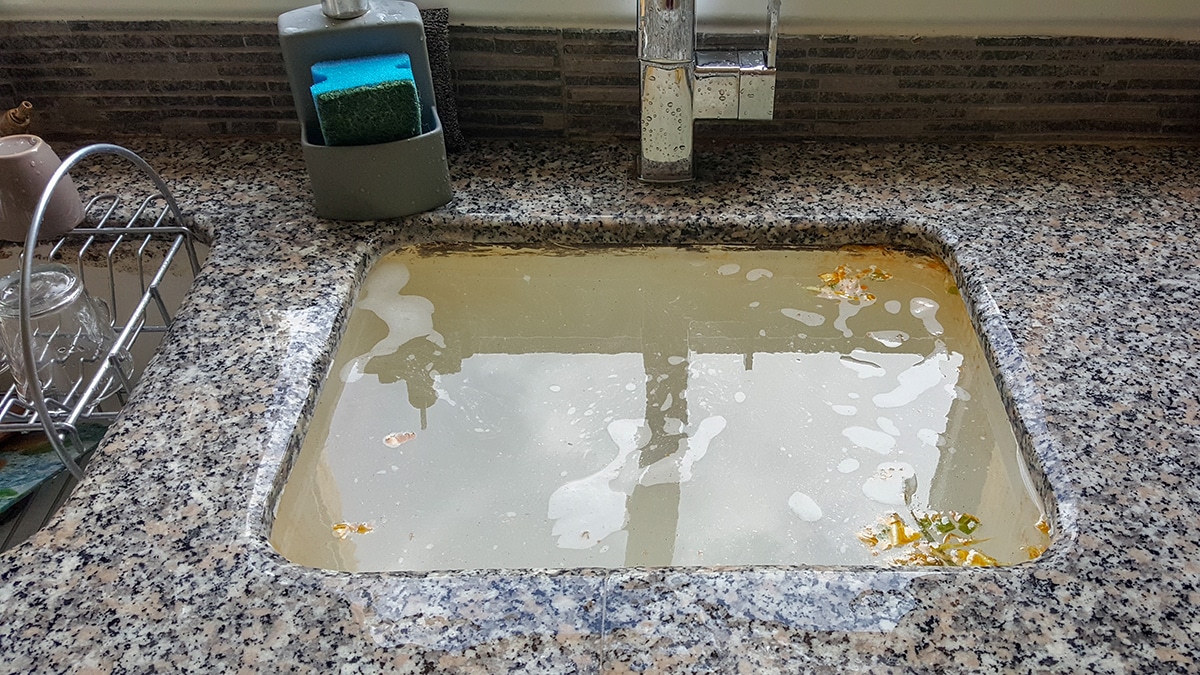 The first step in fixing a kitchen sink that isn't draining is to determine the cause of the issue. If it is a simple clog, you can try using a plunger or a drain snake to remove the blockage. For more stubborn clogs, a mixture of baking soda and vinegar can help break down the debris. However, if the issue lies with the plumbing system or a faulty appliance, it is best to call a professional plumber for assistance. They have the expertise and tools necessary to diagnose and fix the problem effectively.
The first step in fixing a kitchen sink that isn't draining is to determine the cause of the issue. If it is a simple clog, you can try using a plunger or a drain snake to remove the blockage. For more stubborn clogs, a mixture of baking soda and vinegar can help break down the debris. However, if the issue lies with the plumbing system or a faulty appliance, it is best to call a professional plumber for assistance. They have the expertise and tools necessary to diagnose and fix the problem effectively.
Preventing Drainage Issues in the Future
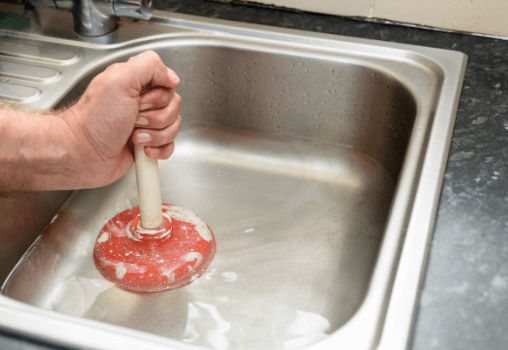 To avoid dealing with a kitchen sink that isn't draining in the future, there are some preventative measures you can take. Avoid pouring grease or oil down the drain, as it can solidify and cause blockages. Use a drain strainer to catch food particles and debris before they can enter the pipes. Regularly cleaning your sink and drain with a mixture of hot water and dish soap can also help prevent buildup. And finally, be mindful of what you put down your garbage disposal and avoid overloading it.
In conclusion, a properly functioning kitchen sink is crucial in house design. It not only ensures the smooth running of daily tasks but also prevents potential health hazards and costly repairs. If you encounter any drainage issues with your kitchen sink, it is best to address them promptly and seek professional help if needed. By taking preventative measures, you can avoid dealing with a clogged sink in the future and maintain a functional and hygienic kitchen.
To avoid dealing with a kitchen sink that isn't draining in the future, there are some preventative measures you can take. Avoid pouring grease or oil down the drain, as it can solidify and cause blockages. Use a drain strainer to catch food particles and debris before they can enter the pipes. Regularly cleaning your sink and drain with a mixture of hot water and dish soap can also help prevent buildup. And finally, be mindful of what you put down your garbage disposal and avoid overloading it.
In conclusion, a properly functioning kitchen sink is crucial in house design. It not only ensures the smooth running of daily tasks but also prevents potential health hazards and costly repairs. If you encounter any drainage issues with your kitchen sink, it is best to address them promptly and seek professional help if needed. By taking preventative measures, you can avoid dealing with a clogged sink in the future and maintain a functional and hygienic kitchen.
/plumber-unclogging-kitchen-sink-169270382-5797a9355f9b58461f27f024.jpg)







:max_bytes(150000):strip_icc()/how-to-unclog-a-kitchen-sink-2718799_sketch_FINAL-8c5caa805a69493ab22dfb537c72a1b7.png)



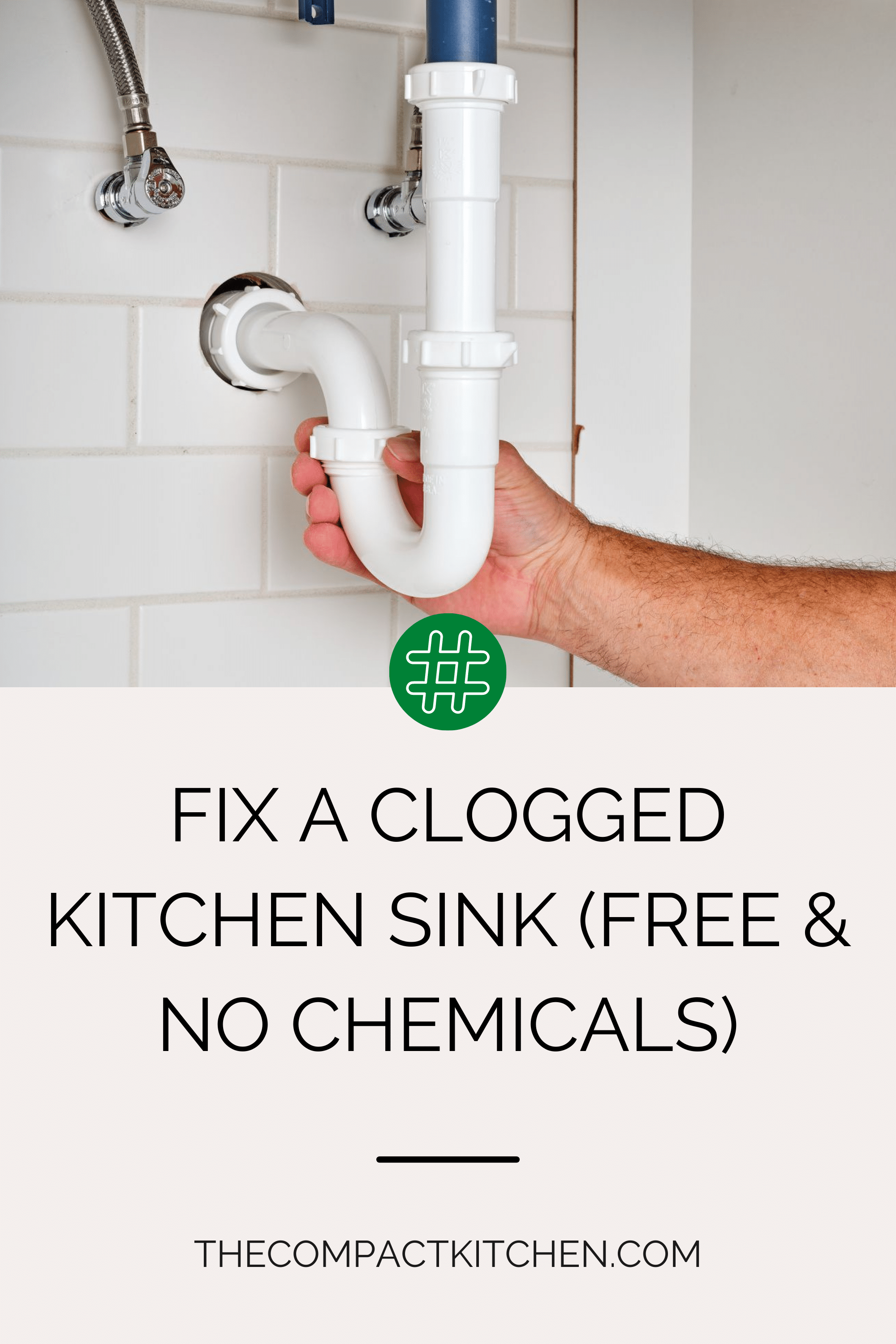





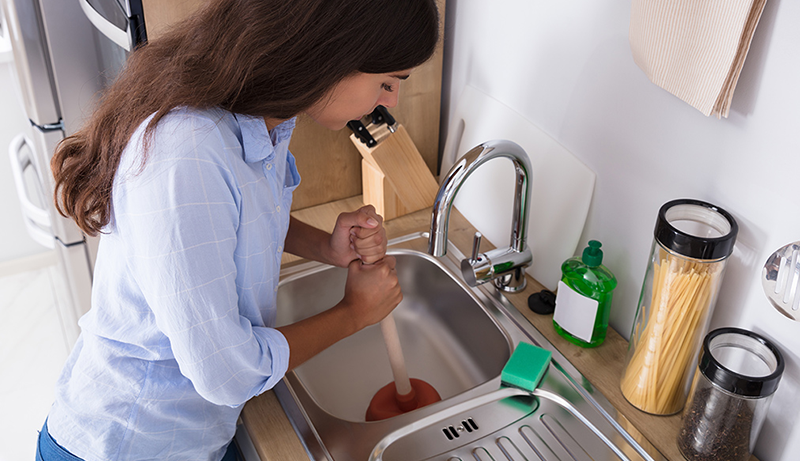

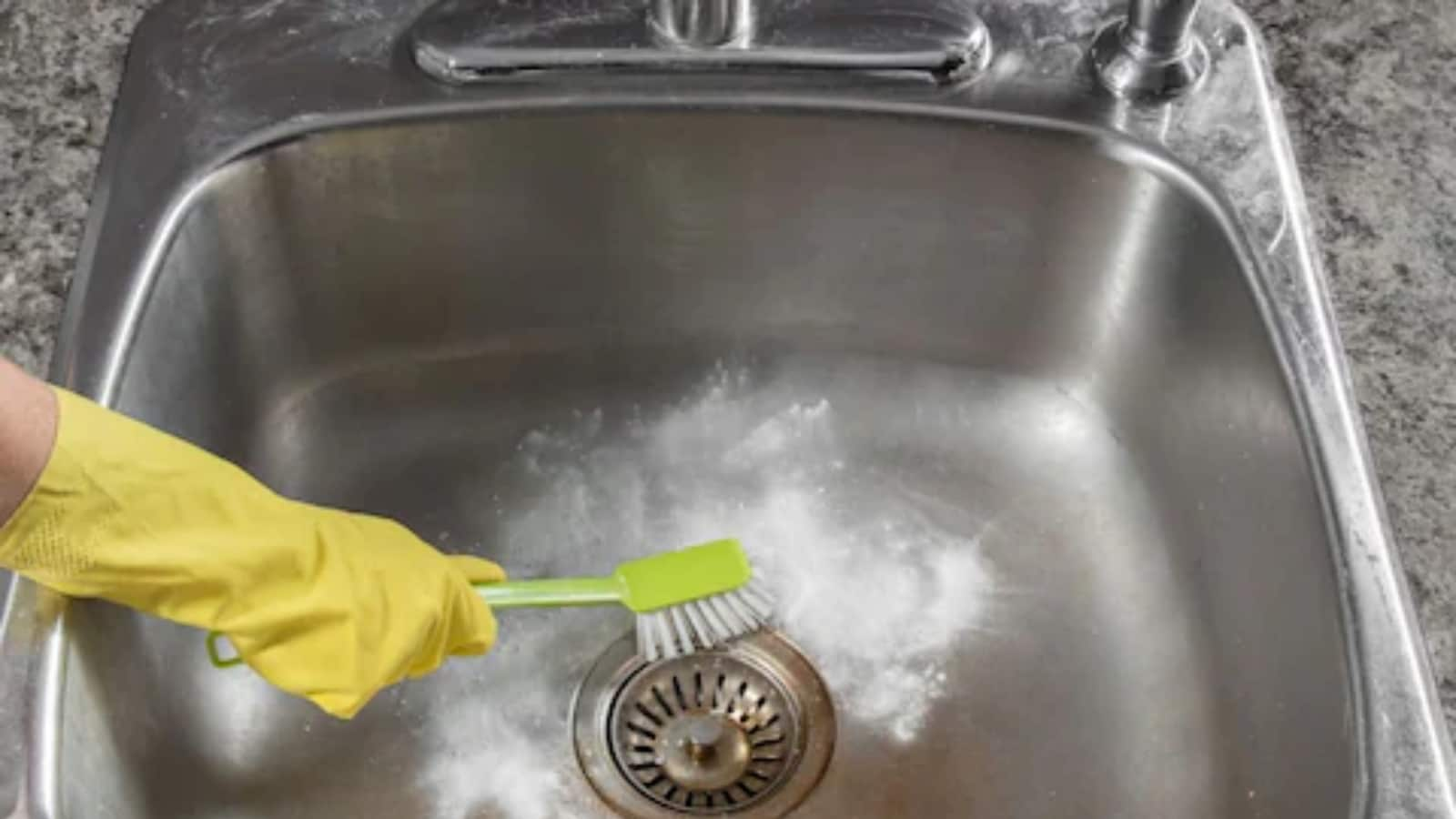




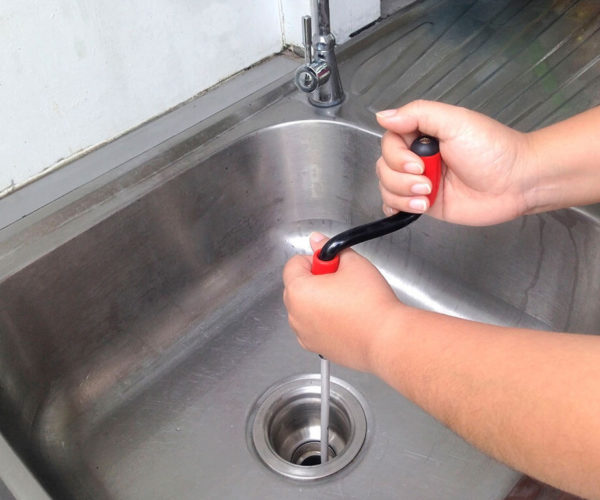
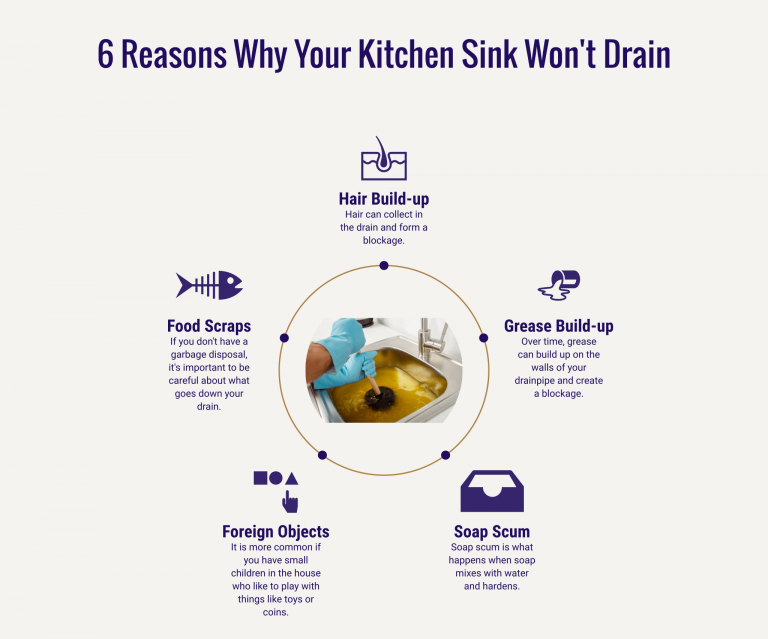

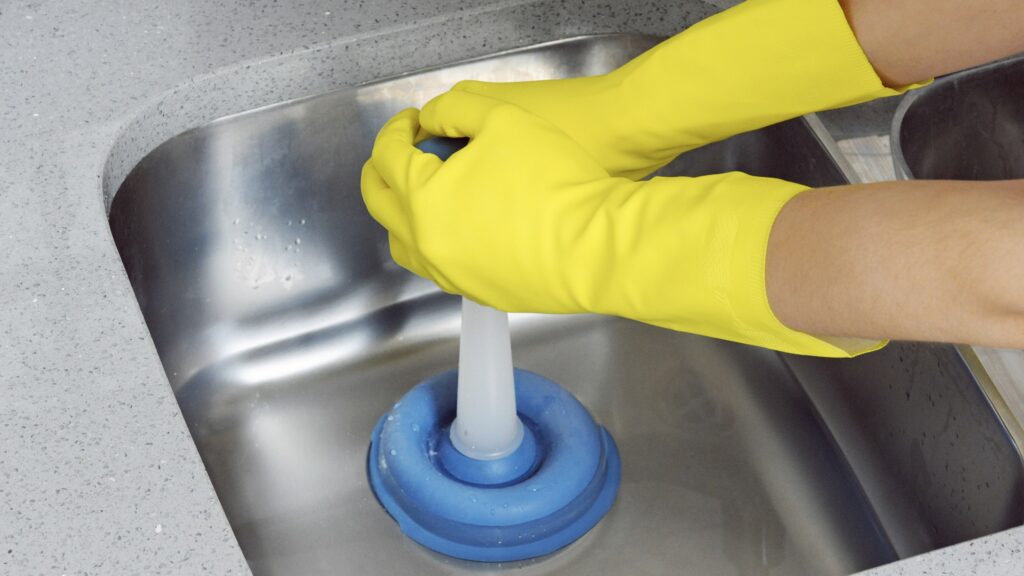
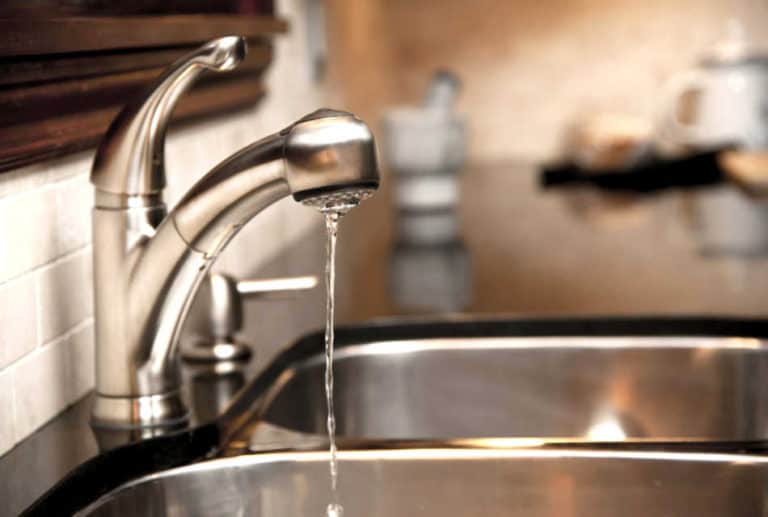


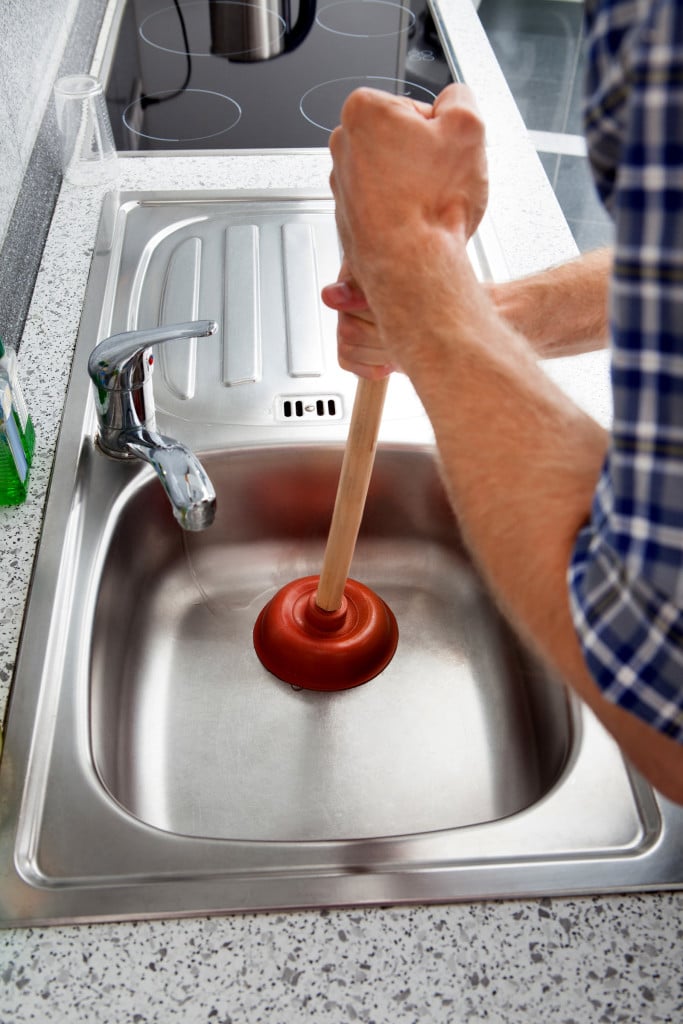





















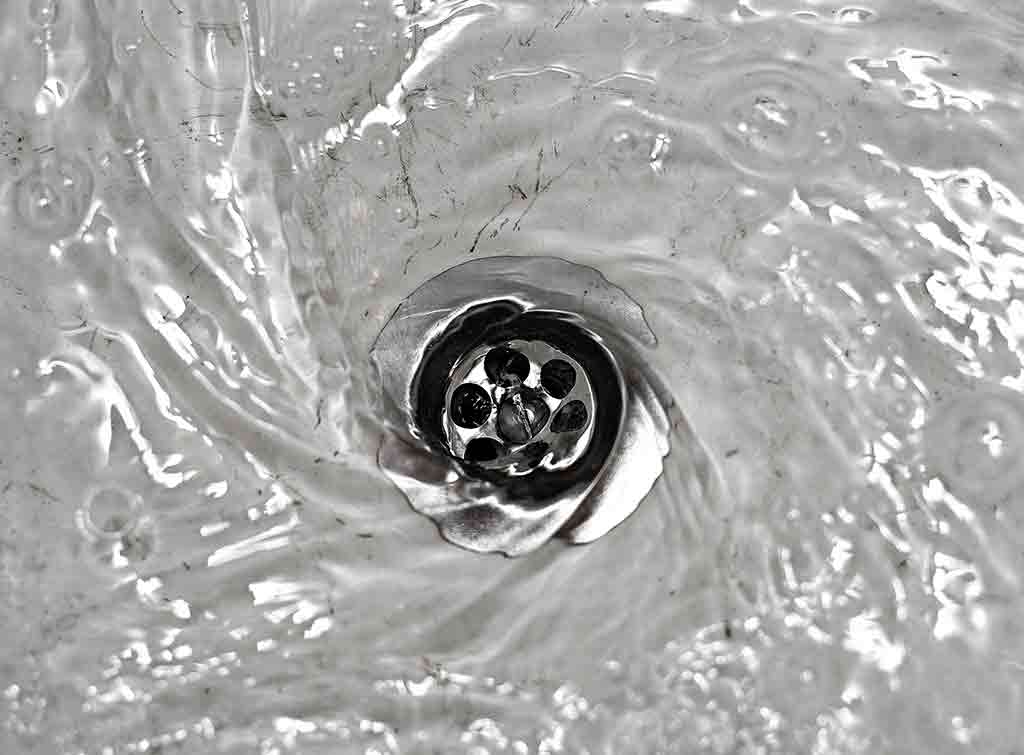
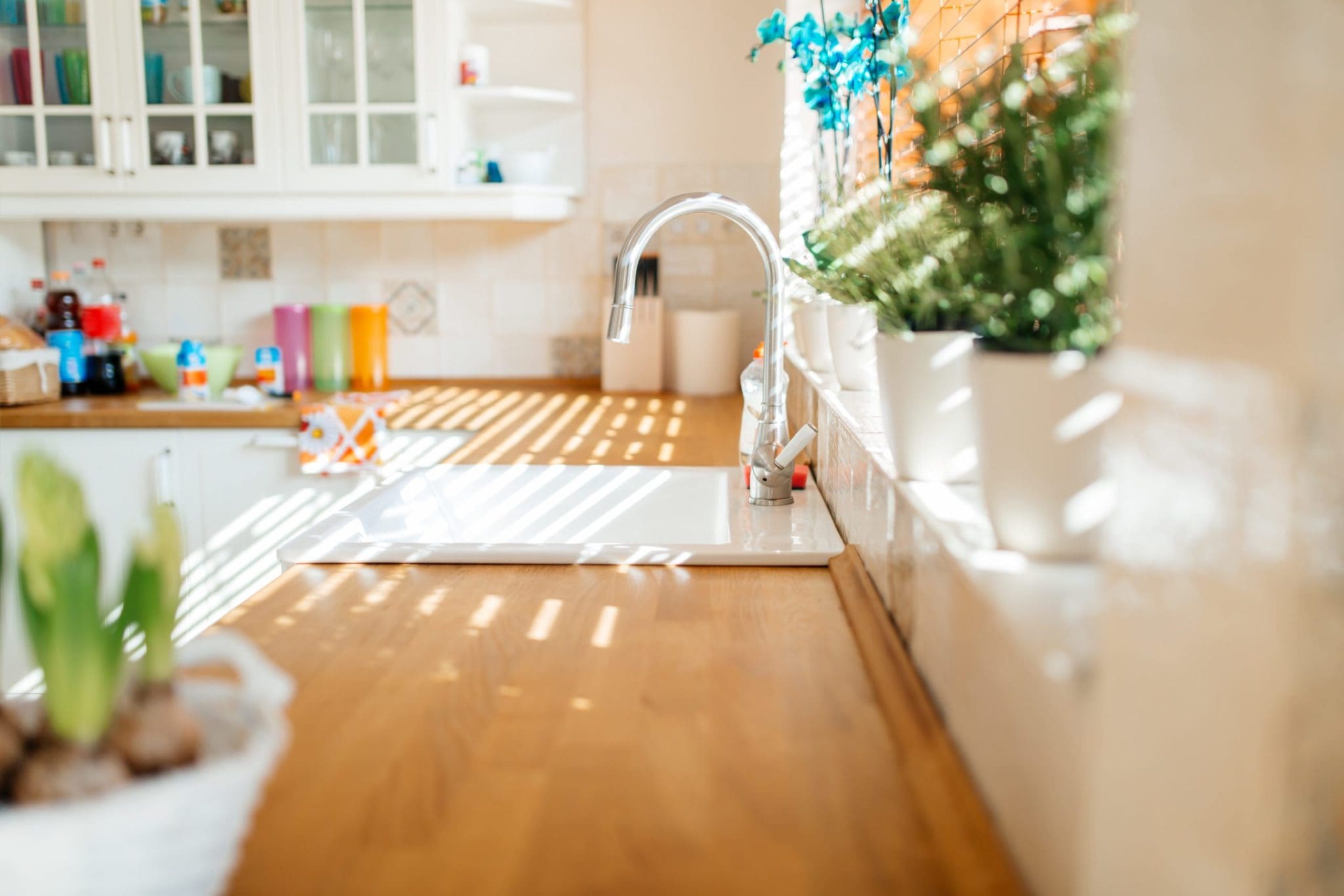





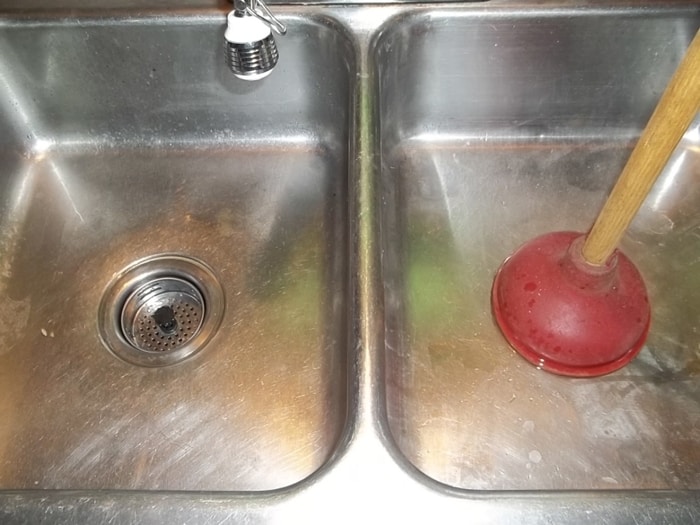
/woman-wearing-yellow-washing-up-gloves-to-unblock-sink-using-plunger-close-up-131987463-5887cfc03df78c2ccd92ec9e.jpg)
:max_bytes(150000):strip_icc()/unclogging-a-toilet-with-a-plunger-2719030_final_horizontal_10_18-d33deec2a8084e289a5427c6745a0d32.png)

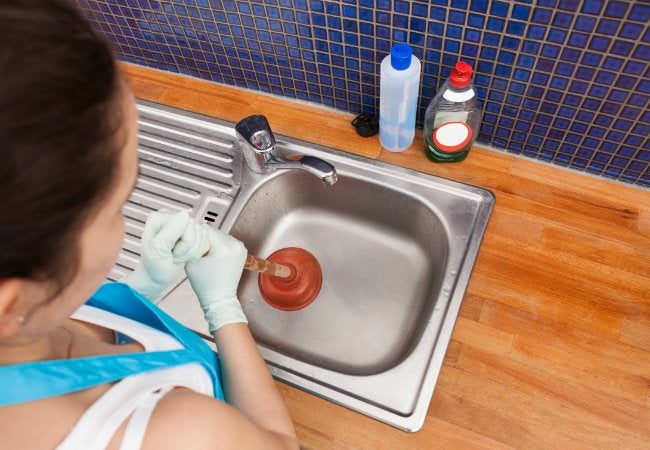


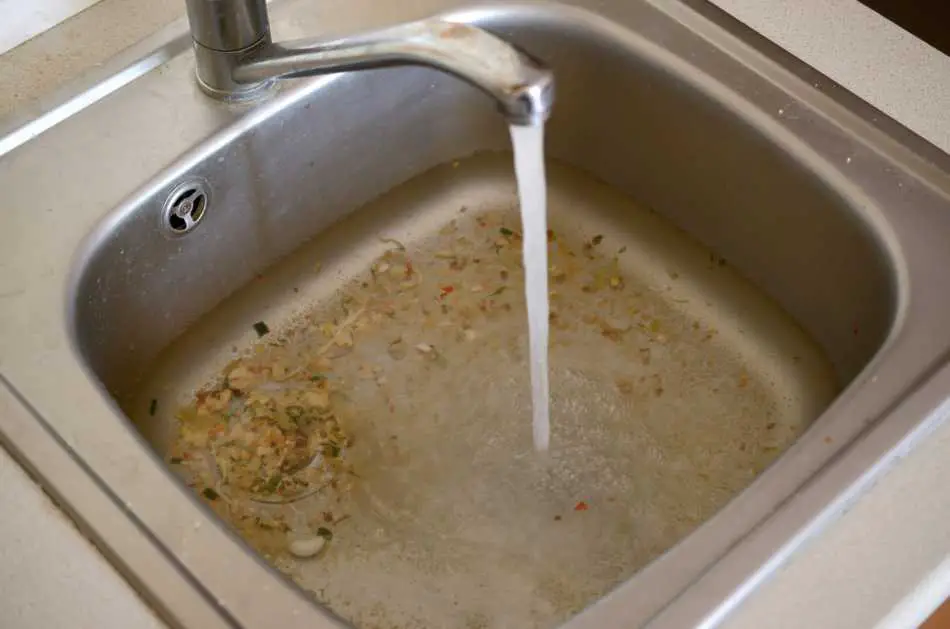


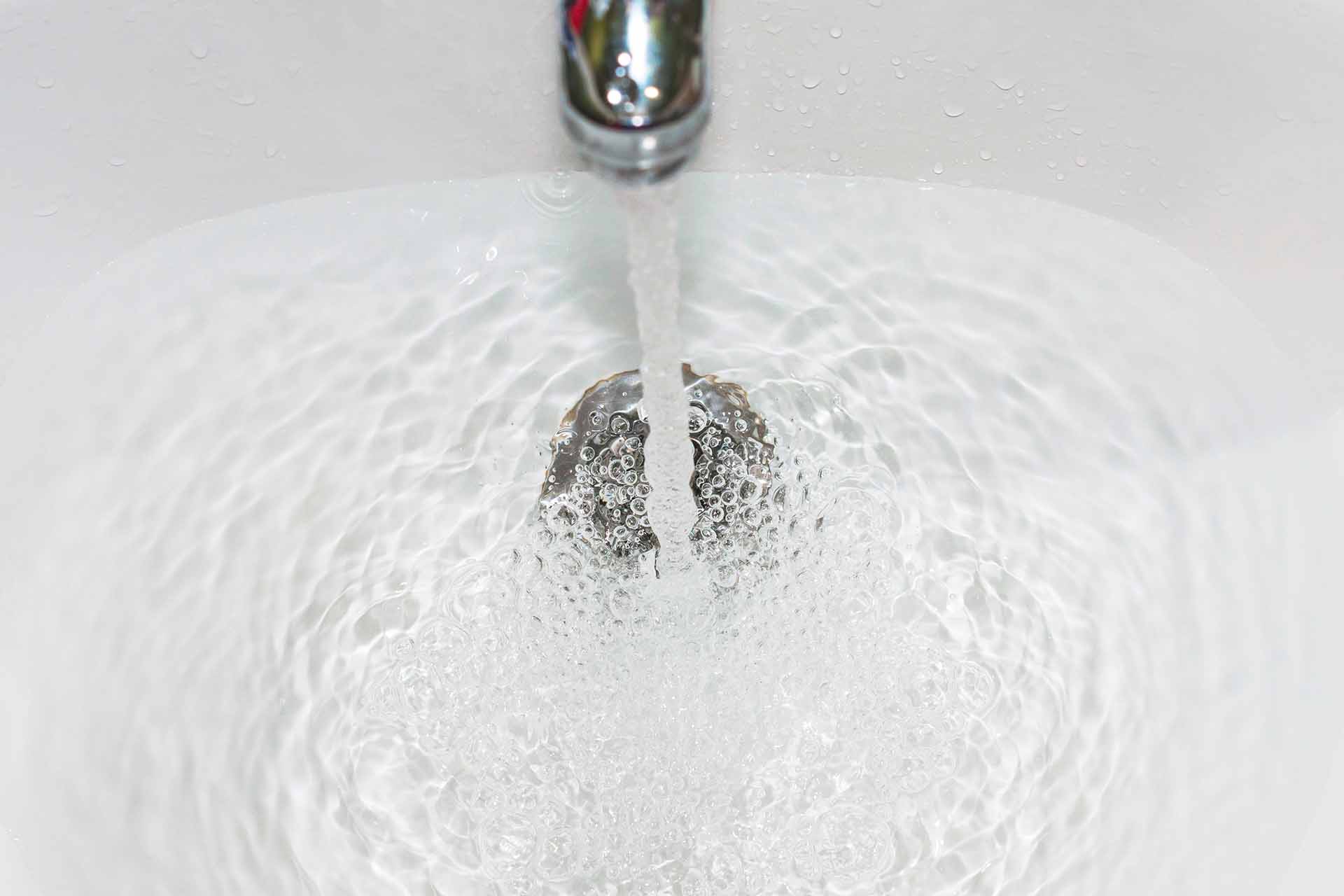







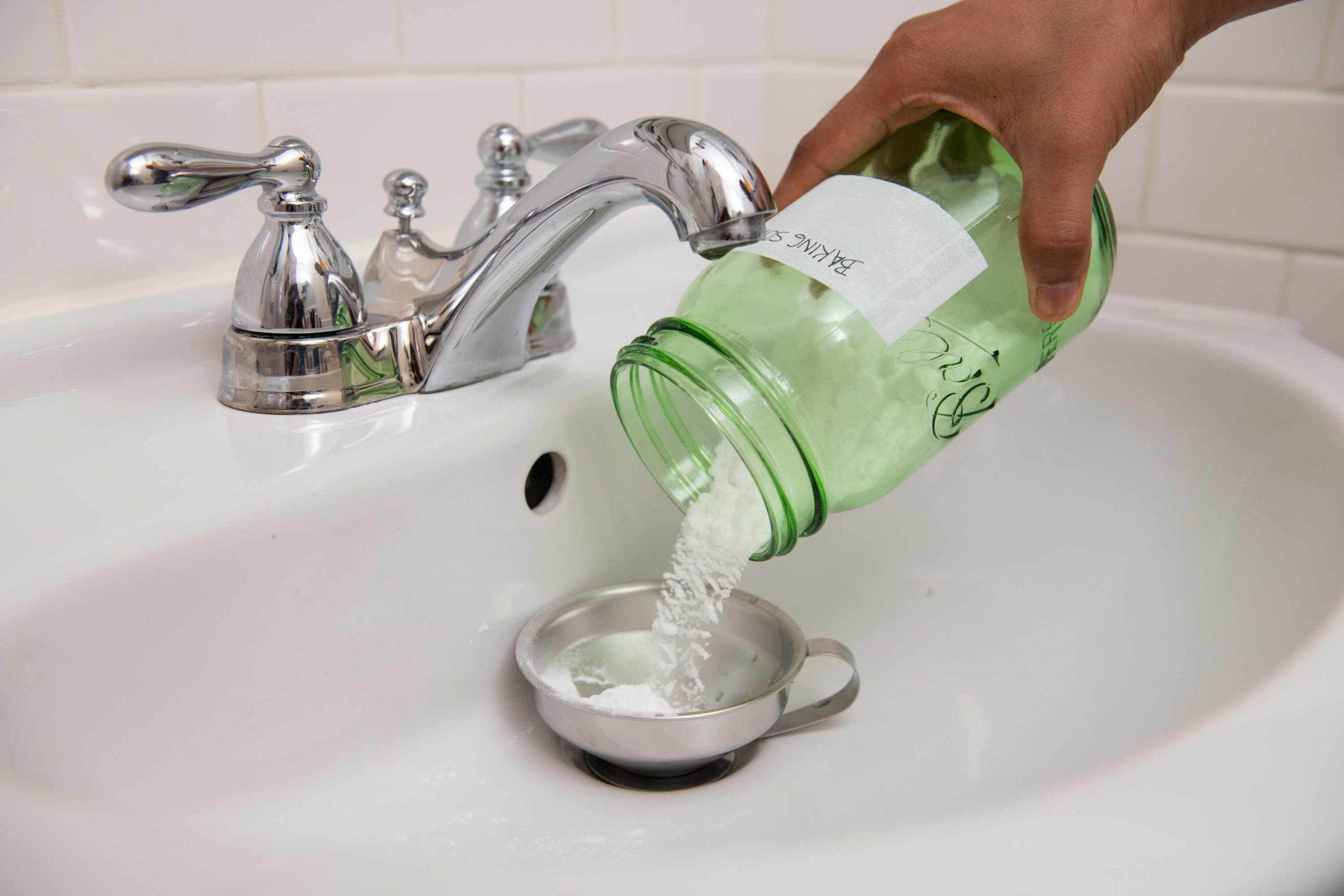
:max_bytes(150000):strip_icc()/freshen-and-unclog-drain-with-baking-soda-1900466-22-bbf940b70afa4d5abef0c54da23b1d3f.jpg)

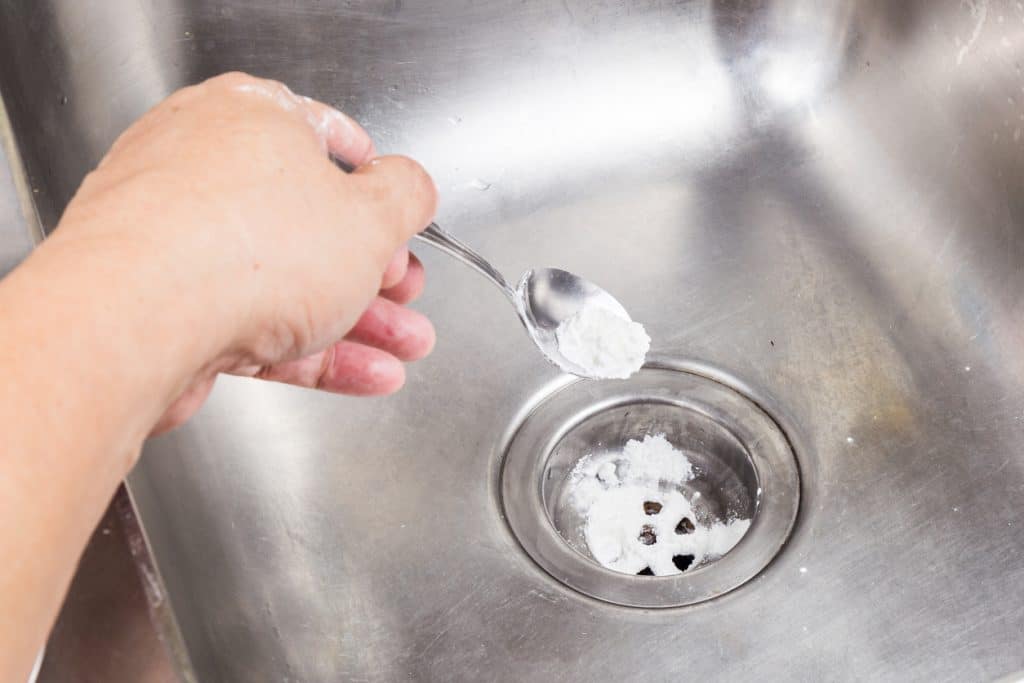
:max_bytes(150000):strip_icc()/freshen-and-unclog-drain-with-baking-soda-1900466-18-1a5b5da01939471ca8f8823865bd1ce8.jpg)



